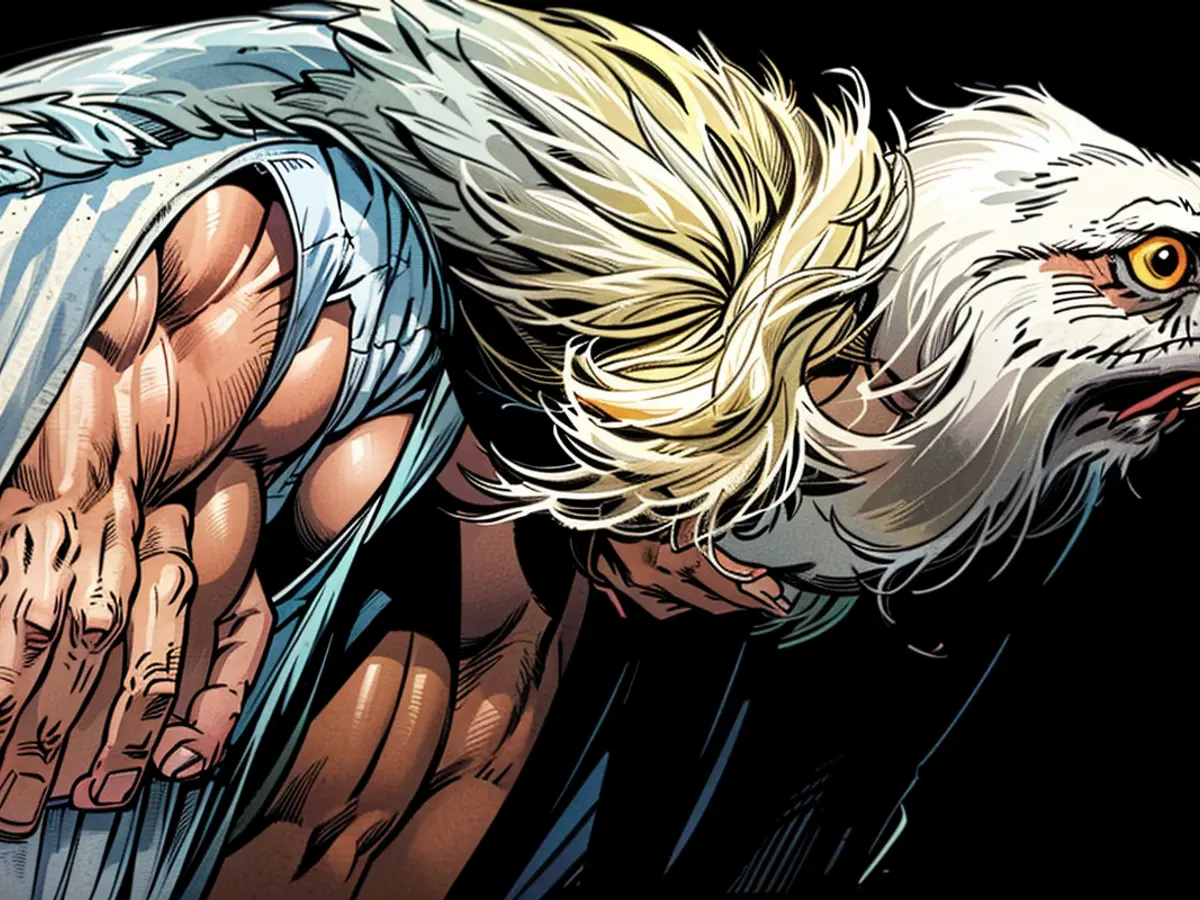Animals - Stranded vultures are cared for at the Edersee
Two Griffon Vultures are currently being rehabilitated at the Raptor Center in the Wildlife Park Edersee. One of the birds was found in the town of Homberg (Efze) in northern Hesse, the other one near Dillenburg in Mittelhessen, reports falconer Jana Zulauf. The two are believed to have originated from Spain or Southern France. Vultures are gliders and are carried by the wind. Around 200 to 250 of them stray to Germany each year. "The problem is that they find too little food here as scavengers."
The vulture in Homberg, which Zulauf estimates to be between six and eight years old, was discovered by a couple at the edge of a meadow and observed by them for three days. "Probably he had been waiting for one of the sheep to die," the falconer continued. The vulture was eventually attacked by a Kestrel and fell down. "That was very unusual," Zulauf had previously told Hessian Broadcasting.
Two Griffon Vultures arrived within a short time
The vulture with a wing span of about 2.5 meters was weakened and let itself be approached by her defenselessly, Zulauf reported further. This had happened about a month ago. Only a few days later, a juvenile found in Mittelhessen joined them, which, according to the falconer's estimation, was younger than four years old. The birds share a aviary since then.
Both Birds were unharmed but in dire need of food. "If vultures don't eat, they not only lack food but also dry out," so Zulauf. The birds take on moisture through their food.
Birds in good condition now
In the Raptor Center, the wild birds are now being fed and cared for. "Their condition is now in good order," said Zulauf. Therefore, they should be returned to their natural habitat as soon as possible, also so that their flight muscles do not weaken too much, explained the falconer.
Plans are to bring the birds to a large vulture colony in Italy at the beginning or middle of August. Then, blood samples will be taken to determine the gender of the two birds. "This is not visible from the outside. A DNA sample provides the only clue."
No offspring expected
Even if it eventually turns out that the birds are hens and cocks, with offspring from their time at the Edersee is not to be expected. "First, the birds are not in their natural habitat. Second, there is an old and a young bird, which is not yet sexually mature. And third, vultures choose their partner very carefully and remain - if possible - together for life," so Zulauf.
Since over 100 years, there has been no Griffon Vulture in Hesse again, said Stefan Stübing from the Hessian Society for Ornithology and Nature Protection (HGON) in Echzell. "The birds come to Germany with a certain regularity now," explained the expert. As scavengers, the food conditions here are not favorable for them. And if the weather conditions are bad for them, the vultures are stranded.
Observations can be reported in online portal.
How should one behave during an observation? "When a vulture flies, it's doing well," says Stübing. Expert help is necessary if the bird remains on the ground for a long time and appears weak. In such a case, one could turn to local nature conservation associations, the forestry office, a veterinarian, or a wildlife rescue station. It is important to keep a distance to avoid unnecessarily disturbing the animal. Observations of vultures should preferably be documented with photos and reported on the bird observation online platform "Ornitho".
The vultures from Homberg and Dillenburg were initially believed to be from Spain or Southern France. These two Griffon Vultures with a wing span of about 2.5 meters were later found to be in dire need of food at the Wildlife Park Edersee. The vulture from Homberg, estimated to be between six and eight years old, had been waiting for a sheep to die before being attacked by a Kestrel. The juvenile found in Mittelhessen, younger than four years old, joined them shortly after. Both birds share an aviary now and are being fed and cared for at the Raptor Center, gaining strength and having their condition improve. Despite the birds potentially being able to produce offspring, it's unlikely due to their ages, being outside their natural habitat, and the selective mating habits of Griffon Vultures. Over a century has passed since Griffon Vultures have been spotted in Hesse, making their presence a rare sight in Germany.








